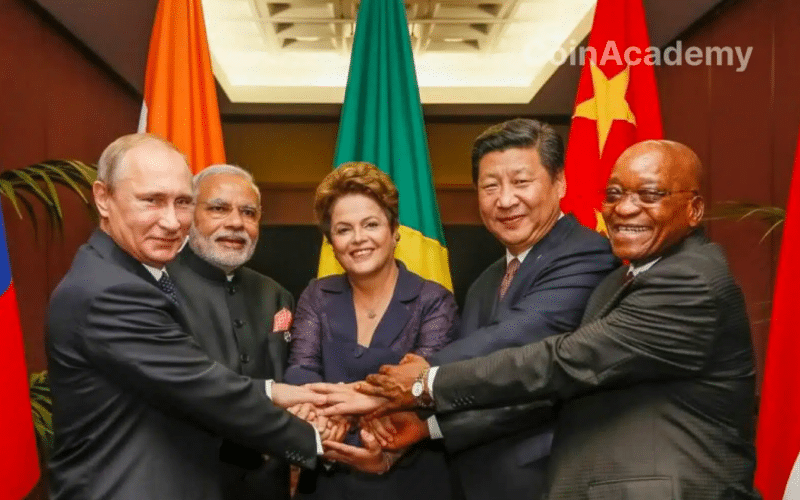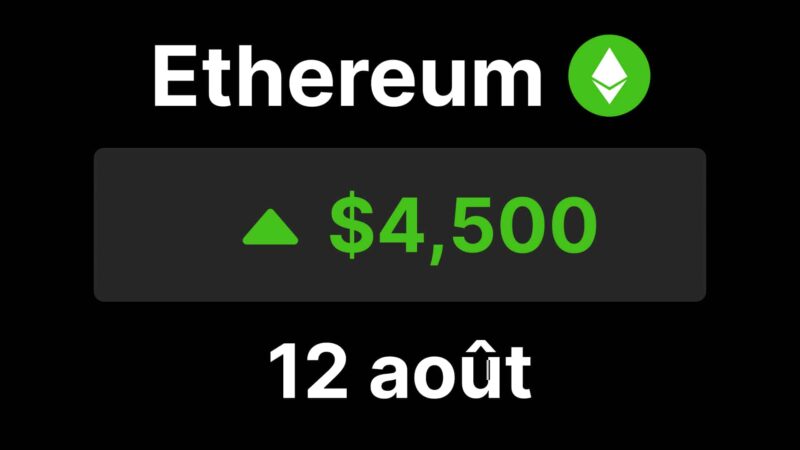|
Getting your Trinity Audio player ready...
|
Jim Rickards, an economist and the author of “Currency Wars,” has predicted the unveiling of a new BRICS currency, stating that it “could weaken the role of the dollar in global payments and ultimately displace the U.S. dollar as the leading payment currency and reserve currency.” Emphasizing that “The process by which this will happen is unprecedented, and the world is unprepared for this geopolitical shock wave,” he noted that “The BRICS+ present a realistic effort to de-dollarize global payments and eventually global reserves.”
Brazil, Russia, India, China, and South Africa to Discuss Common Currency
Economist and “Currency Wars” author Jim Rickards shared his predictions about a proposed BRICS currency in an opinion piece published by the Daily Reckoning earlier this week. The leaders of the BRICS nations (Brazil, Russia, India, China, and South Africa) are expected to discuss the proposed common currency at their next leaders’ summit in August.
“On Aug. 22, about 2½ months from today, the most significant development in international finance since 1971 will be unveiled,” Rickards wrote, elaborating:
It involves the rollout of a major new currency that could weaken the role of the dollar in global payments and ultimately displace the U.S. dollar as the leading payment currency and reserve currency. It could happen in just a few years.
“The process by which this will happen is unprecedented, and the world is unprepared for this geopolitical shock wave,” he opined.
Eight Nations Applied to Join Economic Bloc
Rickards explained that there are currently eight nations that have formally applied to join the economic bloc and 17 others have expressed interest in joining. The eight are Algeria, Argentina, Bahrain, Egypt, Indonesia, Iran, Saudi Arabia, and the United Arab Emirates, he detailed, adding that the 17 countries are Afghanistan, Bangladesh, Belarus, Kazakhstan, Mexico, Nicaragua, Nigeria, Pakistan, Senegal, Sudan, Syria, Thailand, Tunisia, Turkey, Uruguay, Venezuela, and Zimbabwe.
In April, Anil Sooklal, South Africa’s ambassador to the BRICS economic group, revealed that 19 countries have either applied to join or have expressed interest in joining. “We are getting applications to join every day,” he stated at the time.
Global De-Dollarization Trend
The economist then discussed the global de-dollarization trend, as a growing number of countries shift away from using the U.S. dollar in trade settlements in favor of national currencies. “What’s behind this quest to ditch the dollar? In no small part the answer is U.S. weaponization of the dollar through the use of sanctions,” the Currency Wars author described.
“Many other nations began to conclude that they could be next if they run afoul of the U.S. on certain issues. And that fear has greatly accelerated the push to opt out of the dollar system entirely,” he continued, adding:
New BRICS+ Currency to Be Announced
Rickards noted that efforts to shift to using national currencies “may soon be superseded by a new BRICS+ currency, which will be announced in Durban, South Africa, at the annual BRICS leaders’ summit Conference on Aug. 22–24.”
Believing that the new BRICS currency “will be pegged to a basket of commodities for use in trade among members,” Rickards predicted: “Initially, the BRICS+ commodity basket would include oil, wheat, copper, and other essential goods traded globally in specified quantities.”
He further explained: “In all likelihood, the new BRICS+ currency would not be available in the form of paper notes for use in everyday transactions. It would be a digital currency on a permissioned ledger maintained by a new BRICS+ financial institution with encrypted message traffic to record payments due or owing by participating parties.” He clarified that this new currency will not be a cryptocurrency “because it is not decentralized, not maintained on a blockchain, and not open to all parties without approval.”
Currency Linked to Gold
The economist concluded:
Based on the impracticality of commodity baskets as uniform stores of value, it appears likely that the new BRICS+ currency will be linked to a weight of gold.
“This plays to the strengths of BRICS members Russia and China, who are the two largest gold producers in the world and are ranked sixth and seventh respectively among the 100 nations with gold reserves,” he stressed.
While Rickards anticipates the unveiling of the new BRICS currency at the forthcoming leaders’ summit of the economic bloc, there is widespread skepticism regarding the feasibility of such a currency. This skepticism extends to individuals like Lord Jim O’Neill, the British economist credited with coining the acronym BRIC.




